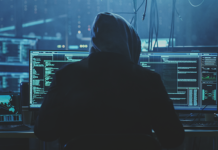
The Anon Media Faction reported on an Anonymous-linked hacker facing extradition charges to the U.S., and further pending court cases where the British equivalent to the FBI – the National Crime Agency – was attempting to recover encryption keys and passwords to the hacker’s computers and other personal devices.
READ MORE: FBI set to Extradite UK Anonymous-Linked Hacker without Evidence; Facing 14 Years Jail
Lauri Love, who has been accused of hacking government bodies in 2012 and 2013, including the Department of Defense, has had a win in court.
Seeking the return of his personal computers and devices in a launched civil case, the NCA renewed their pursuit. Investigators, who refused to return his equipment, called his bluff, saying passwords would have to be given in exchange.
There has been a growing fear since the beginning of this case, that far-reaching consequences for activists and journalists who need to guard their sources of information, would compel a heavier form of self-censorship, let alone giving security agencies an easier path to seize and retain encrypted material.
This week, the Westminster Magistrates’ Court ruled in Lauri Love’s favour. According to The Intercept’s Cloud Document Data Submission, District Judge Nina Tempia stated that she was not “persuaded by the [NCA] arguments” to grant the application forcing over encryption codes.

According to Judge Tempia, Love’s bail ended in July 2014 “when he was not charged with any offence.” In 2015, Love applied for the return of the equipment that remained in the NCA’s possession.
Under the current case, a new submission was made by Love’s legal representation that the NCA had not followed proper procedure, rather, it had tried to circumvent it and not file a RIPA. As a result, Judge Tempia stated “an improper use of the court’s case management powers and breaches Mr Love’s Article 1, Article 8, Article 1 Protocol 1 rights and section 3 of the Human Rights Act 1998.”
Although this is a win in the right direction for Love, the U.S. is still seeking to extradite him on hacking charges, which if tried on U.S. soil, could see him face a 99-year prison term in a maximum security facility.
Sources: Document Cloud (The Intercept), The Intercept, AnonHQ, Legislation.gov.
You want to support Anonymous Independent & Investigative News? Please, follow us on Twitter: Follow @AnonymousNewsHQ
This article (Anonymous-Linked Hacker Has a Win in Court) is a free and open source. You have permission to republish this article under a Creative Commons license with attribution to the author AnonWatcher and AnonHQ.com.




